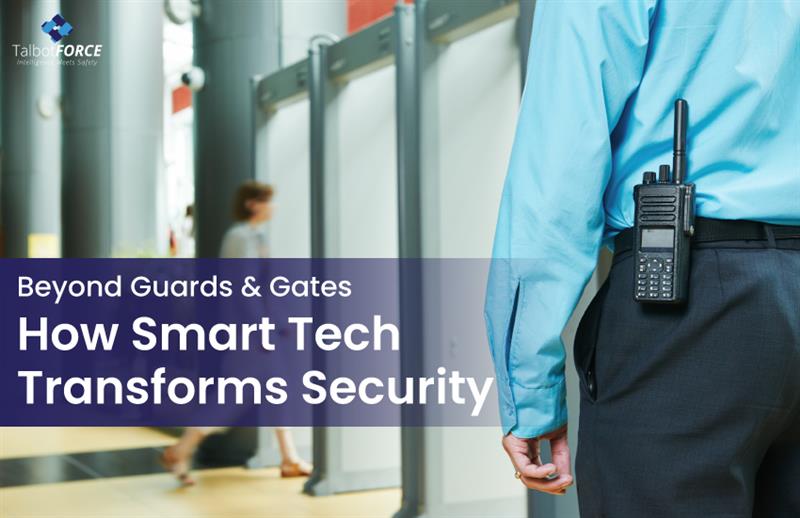A smart office sounded like a futuristic idea before. It includes temperature, lights, and doors and is controlled with voice commands and motion sensors. It also consists of top-notch security with automated locks and access levels. However, it does not sound far-fetched anymore. The use of smart technology in workspaces has become a necessity. Besides looking great, businesses use workplace security solutions to help employees be more productive and efficient.
Keeping an office sharp is an ongoing process. As you change your way of working, you should evolve your smart workspace too. When you understand the importance of technology in security management, you can easily use it for a productive business and thriving culture. With no real-time intelligence, the best-trained security guards even fail to work. Conventional security solutions like guards, guns and gates can no longer shield your business.
Introducing Smart Technology
Smart technology belongs to advanced gadgets and systems that use data analytics, IoT (Internet of Things), and AI (Artificial Intelligence) to boost performance over time, learn from user communications and function autonomously. The mentioned technologies are interconnected, allowing them to gather, process and share information easily without human interference.
Examples include smart devices like security cameras, smart personal assistants like smartphones and innovative industrial equipment. Smart technology improves convenience, efficacy and decision-making for businesses and entrepreneurs by offering automated responses and real-time information, changing different facets of daily life.
Smart Technologies That Shape Workplace Security
IoT (Internet of Things)
Using IoT, you can connect many sensors and gadgets to build an interconnected network. Such networks can communicate with each other and handle and observe security across an official website. IoT gadgets like access control systems, smart cams and environmental sensors collect data constantly and interact with each other to enable a comprehensive view of a website’s security. This allows coordinated responses to threats and real-time monitoring.
AI (Artificial Intelligence)
Machine learning and artificial intelligence are the fundamentals of workplace security solutions. Such technologies in security management help recognise patterns, learn from historical insight, and predict possible data breaches without human interference. AI-enabled video surveillance can assess footage in real time, identify any unusual activity or behaviour and alert security guards before something happens. This predictive capacity considerably lowers response times and improves the efficiency of security systems.
Advantages of Smart Technology in Security Management
When you explore how smart technologies are transforming the future of workplace security, the perks businesses can enjoy are a big part of it.
Flexibility and Scalability
Workplace security solutions are highly scalable; you can customise them to fit a business’s needs. Whether a start-up or an enterprise, these systems can easily be tailored to offer the perfect security level. Since businesses develop, workplace security solutions can also be upgraded or enhanced to fulfil additional needs.
Affordability
The first investment in smart technology in security management can be substantial. However, you may experience considerable financial savings in the long run. Automated systems lower the requirement of human surveillance, reducing labour expenses and requiring a physical team of security guards. Preventing data breaches and reducing damages can cause considerable cost savings for businesses.
Improved Threat Detection and Response
Smart technologies in security management offer exceptional threat detection and response capacities compared to conventional security systems, like guards and gates. AI-enabled analytics can recognise possible threats with high precision and round-the-clock, lowering the possibility of fake alarms, which can beat human capacity. Automated responses like notifying law enforcement or locking doors can also be immediately prompted. This reduces the effect of human mistakes and security incidents.
Data-Driven Decision Making
Intelligent workplace security systems collect data that offers important insights to inform the decision-making process for businesses. They can use that information to recognise trends, analyse the efficiency of a security system and create detailed decisions about upcoming investments in security solutions.
Choosing the Right Workplace Security Solution
Analyse the Array of Services Available
Find a full-service workspace provider to help you work in a smarter office. A full-service workplace provider offers everything from seating arrangements to smart security systems.
Check the Experience and Feedback
Choose a workspace that offers smart technology in security management. A smart workspace will help you avoid human error and ensure secure business operations.
Closure
The combination of smart technologies and human expertise will reshape the future of workplace security systems. Whether through biometric access control, autonomous drones, or AI-powered surveillance, you must apply technology in security management to shape a more secure world.
